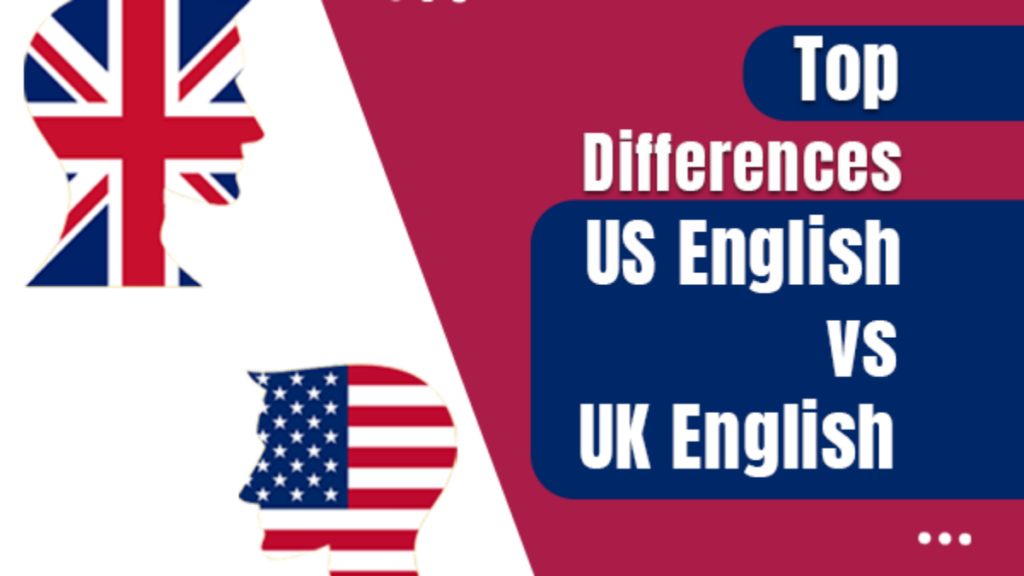For today’s college students, YouTube isn't just a place to watch videos—it's also a platform…

Difference Between US English and UK English
English is a global language, but it comes in different variations, with American English (US English) and British English (UK English) being the most widely used. While both share the same roots, they have evolved differently over time, leading to variations in spelling, pronunciation, vocabulary, and even grammar. Understanding these differences can help you communicate effectively, especially if you’re studying, working, or traveling between the US and the UK.

Spelling Differences
One of the most noticeable differences between US and UK English is spelling. American English often simplifies words by removing unnecessary letters, while British English retains traditional spellings.
- Words ending in -our (UK) vs. -or (US)
- Colour (UK) → Color (US)
- Favour (UK) → Favor (US)
- Words ending in -re (UK) vs. -er (US)
- Centre (UK) → Center (US)
- Metre (UK) → Meter (US)
- Words with an extra “L” in UK English
- Travelling (UK) → Traveling (US)
- Cancelled (UK) → Canceled (US)
- Words with -ise (UK) vs. -ize (US)
- Realise (UK) → Realize (US)
- Organise (UK) → Organize (US)
Vocabulary Differences
Many words have completely different meanings or different names in American and British English.
- Common everyday words
- Lift (UK) → Elevator (US)
- Lorry (UK) → Truck (US)
- Flat (UK) → Apartment (US)
- Holiday (UK) → Vacation (US)
- Petrol (UK) → Gasoline (US)
- Clothing-related terms
- Trousers (UK) → Pants (US)
- Jumper (UK) → Sweater (US)
- Trainers (UK) → Sneakers (US)
- School and university terms
- University (UK) → College (US)
- Mark (UK) → Grade (US)
- Revise (UK) → Study (US)
Pronunciation Differences
Accent differences are obvious when listening to native speakers from the UK and the US, but pronunciation differences also exist in specific words.
- Words with silent letters in American English
- British: schedule (pronounced “shedule”) → American: schedule (pronounced “skedule”)
- British: herb (pronounced “herb” with “h” sound) → American: herb (pronounced “erb” without “h” sound)
- R-pronunciation (Rhotic vs. Non-Rhotic)
- American English is “rhotic,” meaning the “r” sound is pronounced clearly in words like “car” and “hard.”
- British English is “non-rhotic,” meaning the “r” is often silent in words like “car” (sounds like “cah”) and “hard” (sounds like “hahd”).
Grammar Differences
Grammar rules also vary between US and UK English.
- Past tense of some verbs
- Burnt (UK) → Burned (US)
- Learnt (UK) → Learned (US)
- Use of prepositions
- At the weekend (UK) → On the weekend (US)
- In hospital (UK) → In the hospital (US)
- Collective nouns
- British English treats collective nouns as plural: “The team are winning.”
- American English treats them as singular: “The team is winning.”
Which One Should You Use?
There is no right or wrong version—both are correct in their respective regions. However, consistency is important, especially in academic or professional settings. If you’re writing for an American audience, stick to US English, and if your audience is British, follow UK English conventions.
How MakeMyAssignments Can Help with US and UK English Differences
MakeMyAssignments understands the challenges students face when dealing with different versions of English. Their expert writers are familiar with both US and UK English, ensuring that your assignments follow the correct language conventions required by your university. Whether you need help with grammar, spelling, or vocabulary consistency, MakeMyAssignments ensures your work is accurate and professional. Their academic support allows you to focus on learning while avoiding mistakes related to English variations.




This Post Has 0 Comments